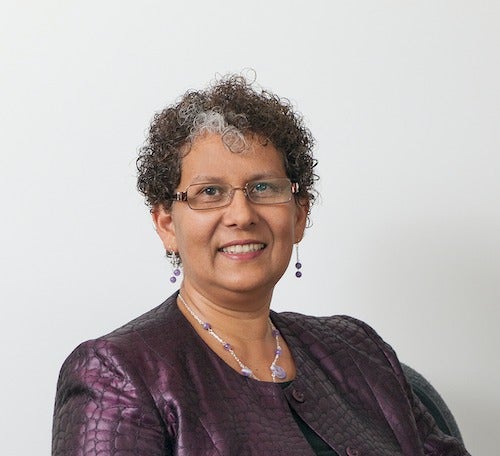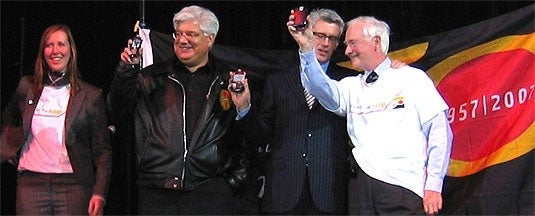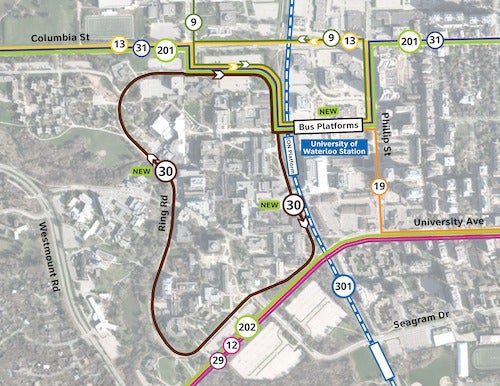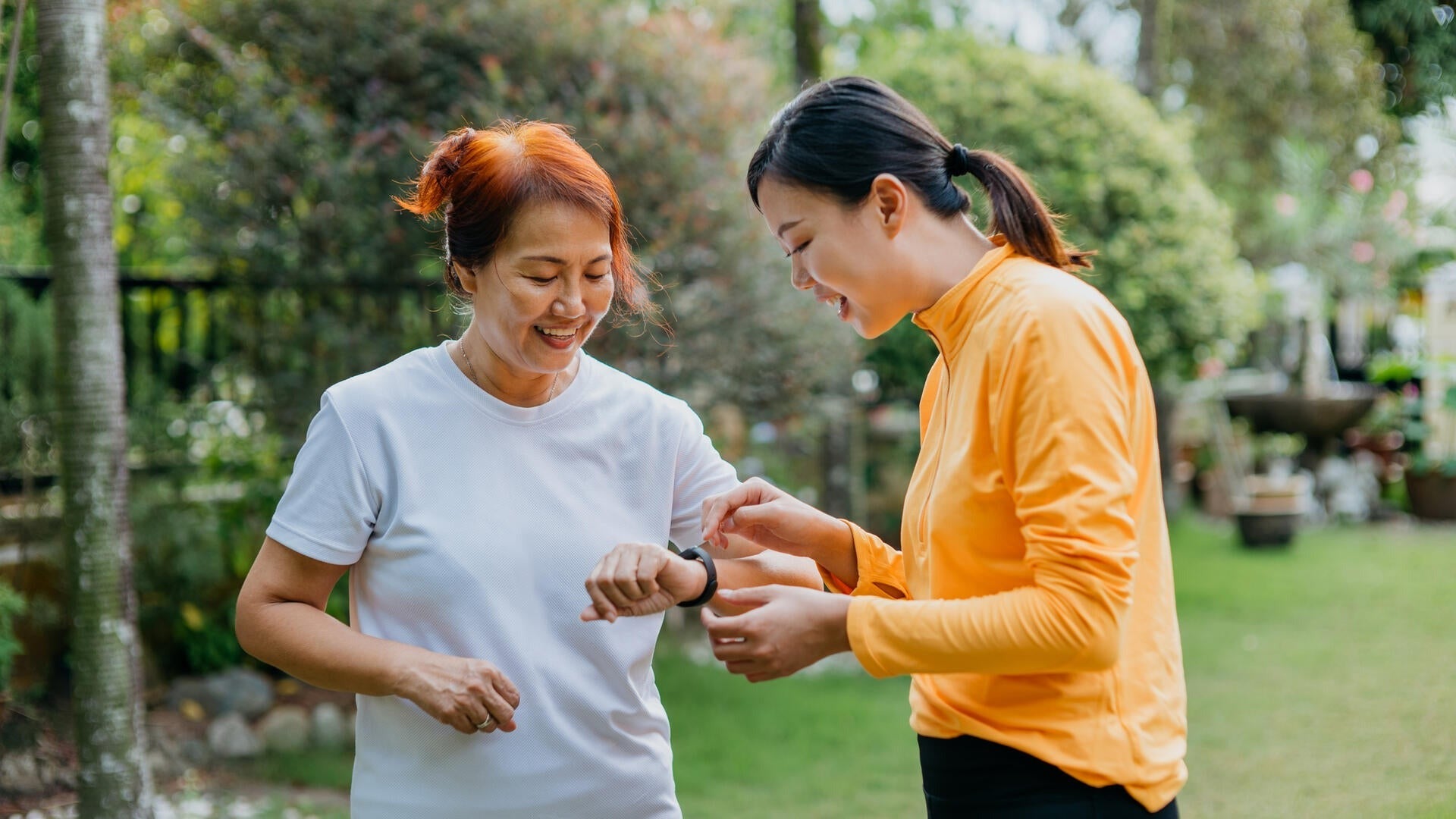Editor:
Brandon Sweet
University Communications
bulletin@uwaterloo.ca
A year-end PART update from the Executive Designate

A message from Charmaine Dean, Vice-President, Research and International and PART Executive Designate. This message originally appeared in the Catalyst e-newsletter.
What a year it has been. Our President’s Anti-racism Taskforce (PART), the team of advisors who help to advance anti-racism initiatives at the University, and all working group and implementation team members, have been hard at work developing recommendations to confront racism and enhance inclusivity and belonging on campus. And doing this critical and difficult work in a remote work and meeting environment!
PART has been an amazing force for change on campus. Its activities have been driven by five working groups, four implementation teams, and a community of racialized individuals committed to confronting racism in all its forms, called the Community Collaborative. It was this Collaborative that formed the seeds for the initiation of the working groups and implementation teams.
We have come a long way since we began this journey. Through consultations, dialogues, environmental scans, and other activities, these groups have been working intentionally to develop recommendations to dismantle racism and to initiate actions to form the foundation for institutional change, as well as inspire activity throughout our Faculties and Affiliate Colleges so we can work collectively to advance an inclusive environment for all our communities on campus.
I would like to extend heartfelt thanks to these individuals for sharing their diverse perspectives, experiences, and identities to help guide and inform approaches to address systems that perpetuate racism. Your voices remain critical to advancing anti-racism at our university.
I would also like to thank the many departments across campus, engaging in anti-racism initiatives and others embedding anti-racism values into their guiding principles and practices.
As we move towards finalizing PART’s recommendations, I am honoured to have supported this work thus far. While I look forward to formalizing recommendations, I recognize that this is just the beginning of our journey. The University still has a lot of work to do to actualize anti-racism values and support an environment that is free and safe from discrimination. We will be sharing more about what this process will entail in the near future and we look forward to the superb leadership that Jean Becker and Christopher Taylor will provide to us.
Once again, heartfelt thanks for your engagement, direction, high enthusiasm, and expertise.
It has been another challenging year working principally remotely and the year’s end has been full of pandemic challenges - yet again. Please take the time to rest and rejuvenate, and enjoy the holiday break – create many special moments. This is not the time to be concerned about what you have not yet completed – but a time to unwind and let peace flow into your activities. Be kind to yourself and to your families and friends. I wish you all a restful, safe, and just wonderfully happy holidays.
Sign up for the Catalyst e-newsletter.
Goodnight, sweet prince: BlackBerry operating systems are going dark

Hold those physical keyboard phones a little tighter, folks. Telephone Services has sent a notification to campus announcing that effective January 4, 2022, BlackBerry operating systems will be decommissioned. BlackBerry, which has steadily moved out of the mobile phone business over the last few years while reinventing itself as a software and security company, telegraphed this eventuality back in 2020.
This means any device/service running on BlackBerry 7.1 OS and earlier, BlackBerry 10 software, BlackBerry PlayBook OS 2.1 and earlier versions, will no longer function. To view the full list of impacted devices, visit bell.ca/blackberryOSdecomm. Get ready to feel some smartphone nostalgia as familiar names on the roster include the Bold, the Curve, the Torch, the Storm, the Pearl, the Q10, the Classic and the Passport, to name a few.
Any BlackBerry device currently running on an Android operating system will continue to function, according to Telephone Services. (Editor's note: as the owner of a Key2, I am relieved to hear this.)
"Any subscribers on our Rogers or Bell Corporate account who are currently using devices with BlackBerry OS should contact telephoneadmin@uwaterloo.ca to arrange for a phone upgrade or a loaner device," says the note from Telephone Services.
This final act of decommission is the end of an era for BlackBerry, coming three years after the company shut down its flagship messaging app BlackBerry Messenger. The company stopped making phones of its own in 2016, licensing its brand to other phonemakers including TCL, which produced the KeyOne and Key2 Android phones in 2017 and 2018. There is of course a long relationship between the University of Waterloo and BlackBerry going back more than 35 years, covered in this Daily Bulletin historical overview by Anne Galang in 2019.
"It is important that we address this issue prior to the decommission date, as voice (including emergency calls to 9-1-1), text and data services will no longer function for impacted subscribers after this date (January 4th, 2022)," says the note from Telephone Services. "In addition, you will continue to be billed for these subscribers after BlackBerry discontinues their support/services."

When times were sweeter: Feds President Michelle Zakrison, RIM Co-CEO (and University Chancellor) Mike Lazaridis, UWaterloo Board Chair Bob Harding, and President David Johnston hold up their BlackBerries at the kickoff to Waterloo's 50th anniversary celebrations in 2007.
Impacted subscribers on University Corporate plans will need to take one of the following actions:
- Upgrade the phone on the current Rogers or Bell account
- Cancel the phone account
- Arrange for a replacement device or Telephone Services loaner phone
If you have questions or concerns, contact Telephone Services, telephoneadmin@uwaterloo.ca, ext. 42745.
New transit platforms to launch on campus in January

By Megan Lambe.
2022 is all about building new connections: transit connections, that is.
Starting January 3, 2022, new bus platforms will open that enable seamless connections between GRT buses, ION light rail, and GO Transit. The new platforms, located between Philip Street and Ring Road opposite the Davis Centre, will provide easy access from main campus for students and employees.
“With approximately 40,000 individuals on campus on a typical day, these new transit platforms provide our community with a common arrival and departure point as well as additional options to explore and enjoy the broader region,” said Chris Read, associate provost, students at the University of Waterloo.
The new University of Waterloo Station will provide access to a modern transit hub with USB charging stations, information displays, fare vending machines, and on-demand heated shelters. The station also supports Waterloo’s commitment to increase sustainable commuting trips to 90 per cent by 2025.
“Ensuring that Canadians have access to reliable and modern public transit infrastructure is vital to building connected and inclusive communities,” said Bardish Chagger, Member of Parliament for Waterloo on behalf of the Honourable Dominic LeBlanc, Minister of Intergovernmental Affairs, Infrastructure and Communities.
The most important thing to note is that bus stops on campus are changing. Please refer to on-site signage for more information, and refer to this PDF for more information about where to catch your bus.
Find out more about the University of Waterloo Station on the GRT website.
Wearable biosensors can help people with complex health conditions

This article originally appeared on Waterloo News.
Remote monitoring of health-related behaviour with wearable sensor technology is feasible for people with complex health conditions, shows a recent University of Waterloo study.
“Information from wearables can provide insight into patterns of health-related behaviour and disease symptoms as they occur over days and weeks. This may be important for monitoring disease progression and the impact of therapeutics, supplementary to assessments conducted in the clinic,” said Karen Van Ooteghem, a researcher in Kinesiology and Health Sciences at Waterloo. “Within our research program, we carry out work to validate novel outcomes derived from wearables for these purposes and develop avenues to relay this information to patients and clinicians.”
It was important for researchers to understand feasibility in participants’ natural environments because behaviour in the lab or clinic may not reflect what occurs in day-to-day living, Van Ooteghem said.
The researchers recruited 39 participants with cerebrovascular or neurodegenerative diseases to wear up to five devices on their ankles, wrists and chest continuously for seven days at home and in the community following a clinic visit. For people living with complex health conditions, there are advantages to using multiple sensors to capture specific behaviours and symptoms – for example, upper versus lower limb impairment. Participants wore at least three devices for a median of 98 per cent of the study period. They also enrolled with a study partner who could help them navigate any issues that arose during the study.
Beth Godkin, a Waterloo Kinesiology and Health Sciences doctoral student and first author on the paper, said the willingness to wear the technology might have been influenced by the support offered to participants during the study. Through interviews with participants and study partners, researchers also learned that there is still room for improvement when it comes to the technology itself that could enhance the user experience.
“Participants felt it was important to optimize comfort, ease of use and appearance if they needed to wear sensors for long periods and felt that continued effort should be made to ensure the technology does not interfere with activities of daily living,” Godkin said. “The generally positive response from participants and willingness to engage in multi-sensor wear over an extended period is the necessary first step towards meaningful integration of our approach in larger research studies and eventually, for uptake within clinical care.”
The study, Feasibility of a continuous, multi-sensor remote health monitoring approach in persons living with neurodegenerative disease, co-authored by Godkin, Van Ooteghem and others at Waterloo, alongside other investigators within the Ontario Neurodegenerative Disease Research Initiative (ONDRI), was published in Journal of Neurology.
Funding for the study was provided through the Ontario Brain Institute.
Link of the day
30 years ago: the fall of the Soviet Union
When and Where to get support
Students can visit the Student Success Office online for supports including academic development, international student resources, immigration consulting, leadership development, exchange and study abroad, and opportunities to get involved.
Instructors looking for targeted support for developing online components for blended learning courses, transitioning remote to fully online courses, revising current online courses, and more please visit Agile Development | Centre for Extended Learning | University of Waterloo (uwaterloo.ca).
Instructors can visit the Keep Learning website to get support on adapting their teaching and learning plans for an online environment.
Course templates are available within your course in LEARN to help you build and edit your content and assignment pages quickly.
The following workshops, webinars, and events are offered by the KL team (CTE, CEL, ITMS, LIB):
- Independent Remote Course Design Essentials, self-directed, continuous self-enrollment course in LEARN.
- Independent Blended Course Design (iBlend), self-directed, ongoing
- Copyright Overview for Waterloo Instructors and Staff - self-directed, continuous self-enrollment course in LEARN.
Employees can access resources to help them work remotely, including managing University records and privacy of personal information. Here are some tips for staying healthy while working from home.
Stay informed about COVID cases on campus by consulting the COVID case tracker.
The Writing and Communication Centre has virtual services and programs to help undergrads, grad students, postdocs and faculty members with academic writing.
- Meet with writing advisors in one-to-one appointments to brainstorm, draft, revise, and polish. No time for an appointment? Try email tutoring for undergrads.
- Beat isolation and make writing progress at weekly Virtual Writing Cafés for grad students and faculty or PJ-Friendly Writing Groups for Undergrads.
- Take an online workshop or apply to our popular Dissertation Boot Camp program.
- Faculty can request custom in-class workshops for their courses, or the WCC can facilitate any existing workshops for student groups.
Co-op students can get help finding a job and find supports to successfully work remotely, develop new skills, access wellness and career information, and contact a co-op or career advisor.
The Centre for Career Action (CCA) is offering virtual services only until we close for the winter break on December 23rd at 2:00pm EST. When we re-open on January 4, all of our services will continue to be offered virtually.Questions about CCA's services? Live chat or call us at 519-888-4047 between 8:30 a.m. and 4:30 p.m. EST, Monday to Friday.
If you feel overwhelmed or anxious and need to talk to somebody, please contact the University’s Campus Wellness services, either Health Services or Counselling Services. You can also contact the University's Centre for Mental Health Research and Treatment. Good2Talk is a post-secondary student helpline available to all students.
While the Library continues to focus on digital resources and consultations, our spaces are open for the fall term. Dana Porter Library is open Monday to Friday, 9 a.m. to 5 p.m., and Davis Centre Library is open Monday to Friday, 9 a.m. to 11 p.m., and Saturday and Sunday, 11 a.m. to 5 p.m. for drop-in individual study space, bookable individual study rooms, drop-in access to computers and printers, book pick-up services and IST Help Desk support. Special Collections & Archives and the Geospatial Centre will be accessible by appointment. Library staff are available for questions via Ask us. Full details on current services and hours are available on the Library’s COVID-19 Update webpage.
The Faculty Association of the University of Waterloo (FAUW) continues to advocate for its members. Check out the FAUW blog for more information.
The University of Waterloo Staff Association (UWSA) continues to advocate for its members. Check out the UWSA blog for more information.
The Sexual Violence Prevention and Response Office (SVPRO) supports all members of the University of Waterloo campus community who have experienced, or been impacted, by sexual violence. This includes all students, staff, faculty and visitors on the main campus, the satellite campuses, and at the affiliated and federated Waterloo Institutes and Colleges. For support, email: svpro@uwaterloo.ca or visit the SVPRO website.
The Office of Indigenous Relations is a central hub that provides guidance, support, and resources to all Indigenous and non-Indigenous campus community members and oversees the University's Indigenization strategy.
The Waterloo Indigenous Student Centre, based at St. Paul’s University College, provides support and resources for Indigenous students, and educational outreach programs for the broader community, including lectures, and events.
WUSA supports for students:
Peer support - MATES, Glow Centre, RAISE, Women’s Centre - Visit https://wusa.ca/peersupport to book an appointment either in person or online for the Fall term.
Food Support Service food hampers are currently available from the Turnkey Desk 24/7 in the Student Life Centre. Drop off locations are also open again in SLC, DC, DP, SCH and all residences.
Co-op Connection all available online. Check https://wusa.ca for more details.
Centre for Academic Policy Support - CAPS is here to assist Waterloo undergraduates throughout their experience in navigating academic policy in the instances of filing petitions, grievances and appeals. Please contact them at caps@wusa.ca. More information is available.
WUSA Student Legal Protection Program- Seeking legal counsel can be intimidating, especially if it’s your first time facing a legal issue. The legal assistance helpline provides quick access to legal advice in any area of law, including criminal. Just call 1-833-202-4571.
Empower Me is a confidential mental health and wellness service that connects students with qualified counsellors 24/7. They can be reached at 1-833-628-5589.
GSA-UW supports for graduate students:
The Graduate Student Association (GSA-UW) supports students’ academic and social experience and promotes their well-being.
Advising and Support - The GSA advises graduate students experiencing challenges and can help with navigating university policies & filing a grievance, appeal, or petition.
Mental Health covered by the Health Plan - The GSA Health Plan now has an 80 per cent coverage rate (up to $800/year) for Mental Health Practitioners. Your plan includes coverage for psychologists, registered social workers, psychotherapists, and clinical counsellors.
Dental Care - The GSA Dental Plan covers 60 per cent to 70 per cent of your dental costs and by visiting dental professionals who are members of the Studentcare Networks, you can receive an additional 20 per cent to 30 per cent coverage.
Student Legal Protection Program - Your GSA fees give you access to unlimited legal advice, accessible via a toll-free helpline: +1-833-202-4571. This advice covers topics including housing disputes, employment disputes, and disputes with an academic institution.
The Graduate House: Community Space Open M - F @ 11:30 a.m. to 6:00 p.m. - We’re open to all students, faculty, staff, and community members. The Graduate House is run by the GSA-UW. Graduate students get special discounts. We are hiring all positions. Bring your resume to the bar.
BIPOC Student Collective - The Collective is a safe space for BIPOC LGBTQ2+ students and aims to foster intergenerational and peer-to-peer support and mentorship. Join the online Discord channel for solidary chats and drop-in sessions.
When and Where (but mostly when)
Healthy Warriors at Home (Online Fitness).
Warriors vs. Laurier Blood Donation Battle. Join your fellow Warriors, donate blood and help us win the Blood Battle against Laurier for a second year in a row. Set up a profile or add the PFL code: UNIV960995 to your account if you have a blood.ca account already. Questions? Contact WarriorsInfo@uwaterloo.ca.
Drop-in to Warrior Virtual Study Halls on Wednesdays from 5:30 p.m. to 7:00 p.m. Come together in this virtual space to set goals and work independently or in groups each week.
Renison English Language Institute continues to offer virtual events and workshops to help students practice their English language skills.
Finance and Student Financial Services will be closed to in-person service in EC5 until the new year. Students, please visit The Centre in Needles Hall or contact Student Financial Services at our helpdesk.
Fall 2021 examination period, Thursday, December 9 to Thursday, December 23.
Co-operative work term ends, Thursday, December 23.
University holiday closure, Friday, December 24 to Monday, January 3, 2022.